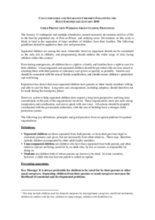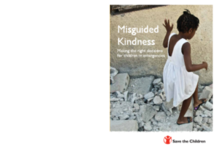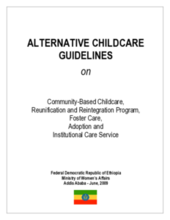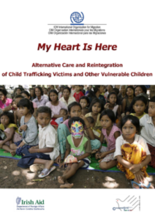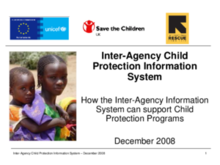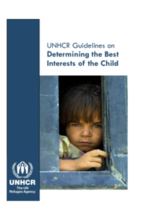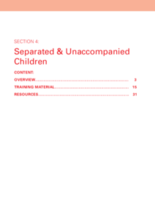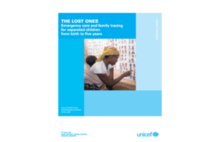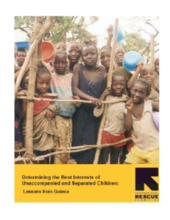Displaying 101 - 110 of 154
Address key messages and considerations for preventing separation; ensuring identification, tracing and family reunification is prioritized; and facilitating interim care, alternative care and adoption where necessary.
Using lessons learnt in emergencies, from the genocide in Rwanda to the Asian Tsunami and the earthquake in Haiti, our new report, Misguided Kindness, demonstrates what action is needed to keep families together during crises and to bring separated children back into a safe and nurturing family life.
This document contains revised alternative care guidelines for Ethiopia. It discusses how development intervention has shifted from a needs based approach to a rights based approach.
This study assesses the development, social integration and post-return reintegration issues facing child victims of trafficking and migration related exploitation in shelters and orphanages in Cambodia.
Sample documents to the Information Management System
Provides a formal mechanism to determine the best interests of the child as a mechanism within a child protection system
Contains an overview of programming to prevent and respond to separated and unaccompanied children, including care arrangements. Includes a training program.
Guidance and preconditions on use of Best Interests Determination for unaccompanied and separated children
This document is intended to provide concrete advice on how to put the guiding principles common to most child protection actors into practice. Though cultural traditions and customs may require the advice to be adapted to the specific context, the authors believe that the advice provided is grounded in sufficiently broad experience to guide measures that ensure children under five are not separated when this can be avoided, and, if separated, can be reunited with their families as quickly as possible.
A report outlining lessons learned in identifying durable solutions for unaccompanied and separated children in Guinea.

